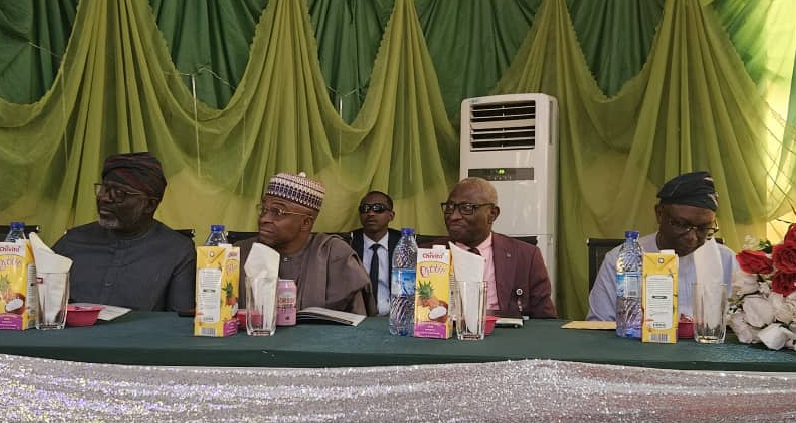
The Minister of Marine and Blue Economy, Adegboyega Oyetola, has urged universities and other academic institutions to collaborate with the government in unlocking the economic and environmental potential of Nigeria’s marine and coastal resources.
Speaking on Wednesday at the 2024 International Conference on “Advancing Entrepreneurship Education and Practice for Sustainable Development in Africa,” hosted by the Institute for Entrepreneurship and Development Studies (IFEDS) at Obafemi Awolowo University, Ile-Ife, Oyetola highlighted key opportunities within the marine and blue economy; from marine engineering to aquaculture.
Represented by the Managing Director of the Nigerian Ports Authority (NPA), Dr. Abubakar Dantsoho, the Minister outlined a range of entrepreneurial opportunities within the marine and blue economy sector. He emphasized fields such as Marine Engineering and Naval Architecture, ship recycling and repair, cadet training and seafaring, and freight forwarding.
“Other opportunities include ship brokering and chartering, cybersecurity and data science, maritime law and policy, and marine insurance,” he stated. “Additionally, there is potential in maritime education and training, research and development, as well as fields like fisheries and aquaculture, seafood processing, maritime biotechnology, underwater welding, diving, and seabed mining.”
Oyetola described the Marine and Blue Economy as a “blue gold mine” with vast entrepreneurial opportunities for African innovators and researchers. By embracing innovation, sustainability, and collaboration between government, academia, and the private sector, he said Nigeria can build a marine and blue economy that significantly contributes to sustainable development.
“Let us work together to unlock the potential of our oceans and coastal resources, creating prosperity for our people while preserving the health of our marine ecosystems for generations to come,” he added. “The future of Nigeria is blue, and it is up to us to shape it.”
Formerly the governor of Osun State, Oyetola stressed the importance of synergy between academic institutions, government, and private stakeholders in fully realizing the opportunities presented by the blue economy.
“The Marine and Blue Economy represents a frontier of immense potential for Nigeria and indeed, all of Africa. It is a sector that, if harnessed correctly, can drive innovation, create jobs, and contribute significantly to our national and continental GDP,” he said.
At the conference, Oyetola discussed entrepreneurial opportunities in the marine and blue economy and emphasized the need for collaboration among academic institutions like Obafemi Awolowo University, government entities, and the private sector to optimize these resources.
“In layman’s terms, the ‘Blue Economy’ encompasses all economic activities linked to our oceans, seas, or coastal areas,” he explained. “It includes fisheries, maritime transport, renewable energy, and tourism—all areas with substantial potential for economic growth, job creation, and poverty reduction.”
Citing Norway as a global example, Oyetola noted the Scandinavian country’s advancements in aquaculture, offshore oil drilling, wind energy, and marine biotechnology as models Nigeria can follow. With its extensive coastlines and marine resources, Nigeria has similar potential in areas like fisheries, aquaculture, renewable energy, coastal tourism, and biotechnology.
“The blue economy sector promises a wealth of benefits for Nigeria’s growing youth population, offering scope for innovation, sustainable growth, and fruitful entrepreneurial paths,” he said, emphasizing the economic prospects as substantial and transformative.
He further highlighted Nigeria’s geographic advantages: “Our country has an expansive coastline of 853 kilometers along the Atlantic Ocean, a maritime area of 46,000 square kilometers within the Gulf of Guinea, and an exclusive economic zone extending over 200 nautical miles with a recent 16,300 square kilometer expansion—about five times the size of Lagos State.”
Oyetola also noted Nigeria’s inland waterways, which stretch 10,000 kilometers and have the potential to support regional trade. “Strategically situated navigational routes connect Africa with North and South America, Europe, and Asia, positioning our maritime sector as a crucial catalyst of the national economy.”
In conclusion, Oyetola underscored that the blue economy offers Nigeria’s youth ample opportunities for innovation, sustainable growth, and entrepreneurship, with the sector’s economic potential being both substantial and promising.















